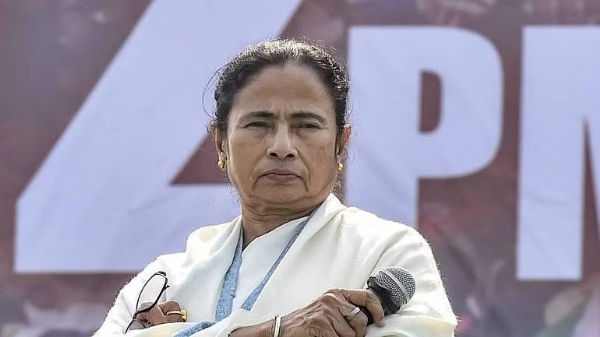'Wrote letter seeking permission...': Mamata Banerjee claims her request prompted Shah to visit Manipur
31 May 2023 17:40:21
Kolkata, May 31: West Bengal Chief Minister Mamata Banerjee on Tuesday said she wrote a letter to the Centre seeking permission to visit "peace-loving people of Manipur", adding that her request prompted Union Home Minister Amit Shah to visit the violence-affected state.

"I have been saying for so many days that they should visit Manipur. So many people died, the country must be told how many people died in the state and what the situation is," the TMC supremo said while addressing a press conference in Howrah. "I wrote a letter seeking permission to visit Manipur to talk to the peace-loving people of Manipur. My letter may be the reason why he (Union Home Minister Amit Shah) made a visit to Manipur. However, despite visiting Manipur, he is not speaking with the people of the state," Mamata Banerjee said.
Also read: Assam's first! PM Modi flags off Vande Bharat Express that connects Guwahati & Jalpaiguri
VIDEO | “I wrote a letter (to the Home Minister) yesterday stating that I want to go to Manipur for a day to meet the peace-loving people. I sent the letter yesterday, and that is the reason why he (Amit Shah) has gone there today,” says West Bengal CM Mamata Banerjee on Home… pic.twitter.com/BNCogVFFK7
— Press Trust of India (@PTI_News) May 30, 2023
On his second day of visit to Manipur on Tuesday, Union Home Minister Amit Shah held wide-ranging discussions with civil society organisations, a group of prominent personalities, intellectuals, retired Army officers and civil servants here in Imphal. The Home Minister also reviewed the security situation with senior officials of the Manipur Police, Central Armed Police Forces and the Indian Army. In the meeting with security personnel, Shah said, "peace and prosperity of Manipur is our top priority", and instructed the officials to strictly deal with any activities disturbing the peace of the state".
He also met a delegation of Women leaders (Meira Paibis) in Imphal. Reiterating the significance of the role of women in the society of Manipur, the Home Minister said that "together, we are committed to ensuring peace and prosperity in the state". The Home Minister further met delegations of civil society organisations such as; COCOMI, AMUCO, AMOCOC, MMW, STDCM, FOCS, Forum for Restoration of Peace and student organisations. The delegation expressed their commitment to peace and assured that we would together contribute to paving the way to restore normalcy in Manipur. Before leaving for Churachandpur, the Home Minister interacted with a group of prominent personalities, intellectuals, retired Army officers as well as civil servants.
--
